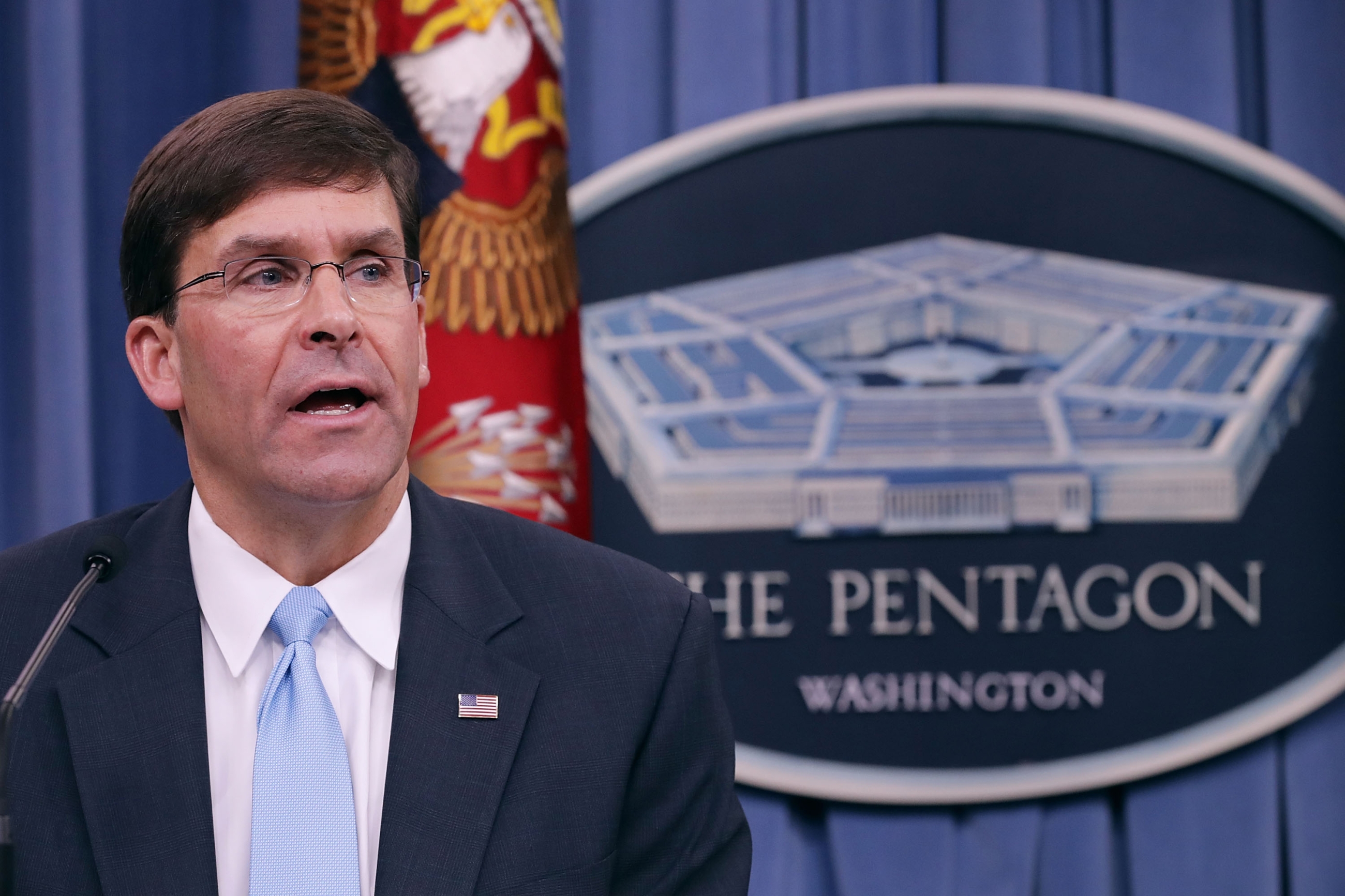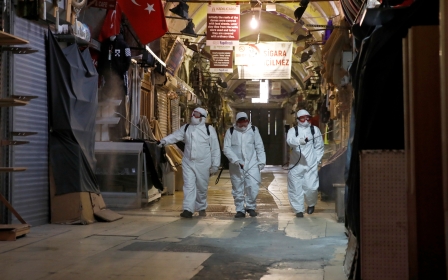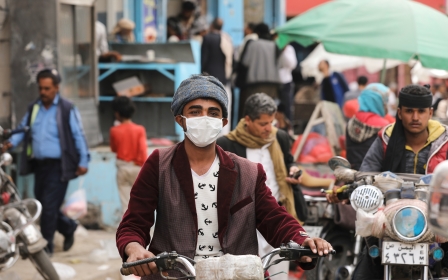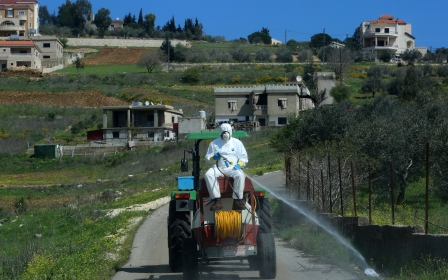Coronavirus: Pentagon orders freeze on all overseas movement of US military

The US has issued an order to halt all movement of its military abroad for up to 60 days in an effort to limit the spread of the coronavirus through the ranks, Defence Secretary Mark Esper told Reuters on Wednesday.
The measure is by far the US Defence Department's most sweeping to date and will affect forces around the world.
Esper said the order applied to all US troops, civilian personnel and families, but that there would be some exceptions.
'Our curve is not flattening'
- Air Force Brigadier General Paul Friedrichs, the joint staff surgeon
"The purpose is to make sure that we're not bringing the virus back home, infecting others, that we're not spreading it around the military," Esper told Reuters in an exclusive interview.
The defence secretary said one exception to the order would be the withdrawal under way in Afghanistan, which will continue.
New MEE newsletter: Jerusalem Dispatch
Sign up to get the latest insights and analysis on Israel-Palestine, alongside Turkey Unpacked and other MEE newsletters
The United States has said it is committed to reducing the number of its troops in Afghanistan to 8,600 from 13,000 within 135 days of signing the deal with the Taliban last month.
A full withdrawal of all US and coalition forces would occur within 14 months of the deal getting signed, if the Taliban holds up its end of the deal.
"That [stop movement order] should not impact that," Esper said of the withdrawal.
'Additional social distancing'
The stop movement order illustrates the Pentagon's growing worries about the rapid spread of the virus, which has already infected 227 US troops - a figure that has risen by about 30 percent in just the past 24 hours.
The US military said earlier on Wednesday that it was also elevating its health protection condition, or HPCON, at bases around the world to Charlie, its second highest level, which suggests sustained community transmission.
"Our curve is not flattening. And that's why we went to HPCON Charlie today, which includes restrictions on large gatherings and includes additional social distancing," Air Force Brigadier General Paul Friedrichs, the joint staff surgeon, told a news conference.
As infection rates climb and military exercises are cancelled, along with many other group activities, defence department officials are increasingly acknowledging that the coronavirus pandemic could affect military readiness for a conflict or crisis.
But Esper and US Army General Mark Milley, chairman of the Joint Chiefs of Staff, have stressed that military leaders will seek to mitigate that risk and insist the US armed forces will still be able to carry out its missions.
Mission-specific information to be withheld
Esper also said the US military has decided it will stop providing some of the more granular data about coronavirus infections within its ranks out of concern that the information might be used by adversaries as the virus spreads.
The former Army secretary said he wanted some of the more mission-specific information to be withheld to prevent compromising operational security.
"What we want to do is give you aggregated numbers. But we're not going to disaggregate numbers because it could reveal information about where we may be affected at a higher rate than maybe some other places," Esper said, without disclosing precisely what information would be withheld or when the plan would be implemented.
He said operational security was particularly important in places overseas where the US is combating adversaries, such as Islamic State in Syria.
Reuters has reported that thousands of US military personnel are in quarantine or in self-isolation in Europe and the Middle East due to either exposure to someone infected or recent travel to high-risk locations.
But the precise number worldwide has not been disclosed and some commands have declined to offer figures, including the US military's Southern Command.
Aiding domestic response
One of those missions, increasingly, is assisting the US government's domestic response to the coronavirus pandemic.
So far, the military has said that it was preparing to deploy field hospitals to Seattle and New York, and has put additional units on prepare-to-deploy orders.
A Navy hospital ship is on its way to Los Angeles and another one is expected to be headed to New York City, each with a capacity of about 1,000 beds for non-coronavirus patients.
The Army Corps of Engineers is working in New York to see how it can increase bed capacity and the Corps has said it is looking at converting more than 10,000 New York rooms, potentially in hotels and college dorms.
Esper said the military was prepared to offer more resources if requested for New York state, the epicentre of the US outbreak, which has infected more than 59,000 people across the country and killed more than 1,000.
Additional medical units had been put on alert to try to stay ahead of the demand, he said.
"We are awaiting a signal from Fema if indeed they want us to further resource New York," he said, referring to the Federal Emergency Management Agency.
More than 10,700 National Guard troops are supporting states in efforts to counter the coronavirus, a number the head of the US National Guard has said could go into the tens of thousands.
Middle East Eye delivers independent and unrivalled coverage and analysis of the Middle East, North Africa and beyond. To learn more about republishing this content and the associated fees, please fill out this form. More about MEE can be found here.




